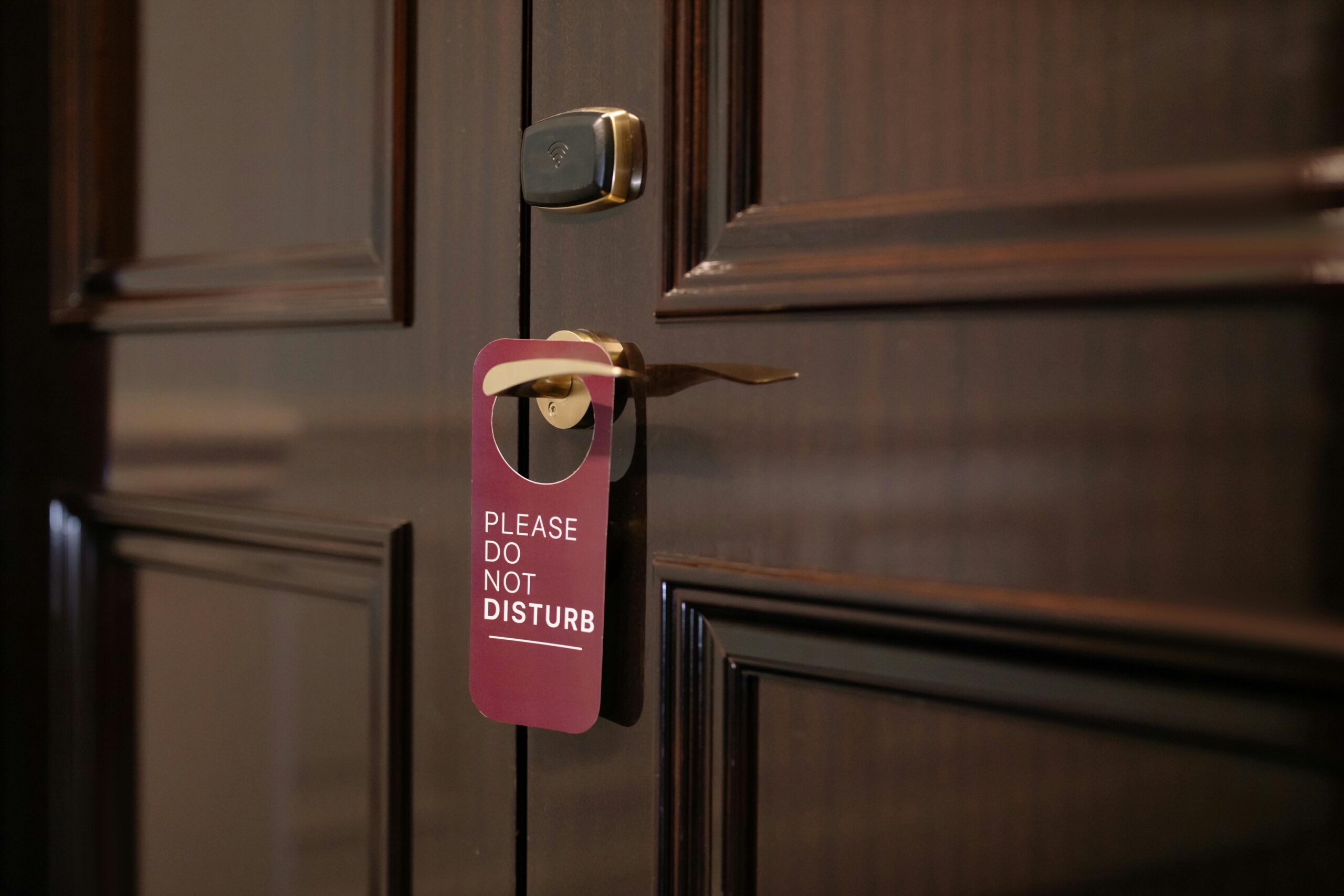Unlocking the Hotel Message Secrets can be the ultimate game-changer for hospitality businesses aiming to captivate guests and boost bookings like never before. Have you ever wondered why some hotels seem to effortlessly attract more visitors and enjoy higher occupancy rates? The answer lies in crafting the perfect hotel message that resonates deeply with potential guests, sparking curiosity and trust from the very first interaction. In today’s competitive market, knowing how to write compelling hotel messages isn’t just a nice-to-have—it’s an absolute must if you want to stand out and convert browsers into loyal customers.
Imagine your hotel’s messages acting as a powerful magnet, pulling in travelers who are searching for exactly what you offer. But, are you communicating your hotel’s unique benefits clearly enough? Many hotels miss out on this golden opportunity by sending generic or dull messages that fail to create excitement or urgency. This article reveals insider tips and proven strategies for writing hotel messages that boost direct bookings, increase guest engagement, and enhance your overall brand reputation. From personalized welcome notes to enticing promotional texts, discover how to use words that spark emotions and inspire immediate action. Don’t let your hotel’s message be just another forgotten email—make it an unforgettable experience that guests can’t resist.
Ready to transform your guest communication and watch your bookings soar? Stay tuned as we dive deep into the world of effective hotel messaging techniques, highlight common mistakes to avoid, and share expert advice on tailoring your content to different guest personas. Whether you manage a boutique inn or a large resort, mastering the art of hotel message crafting will empower you to connect authentically, build trust, and ultimately, grow your business in today’s fast-evolving hospitality landscape.
7 Proven Hotel Message Secrets to Captivate Guests and Maximize Bookings
In the bustling world of hospitality, hotels struggle everyday to stand out and attract more guests. One of the most underrated tools is the power of a well-crafted hotel message. Many hotels miss the chance to connect deeply with their guests right from the first message sent. Hotel message secrets are not just fluff; they are proven tactics to captivate guests and boost bookings significantly. If you want your hotel to stay ahead in New York’s competitive market, understanding how to communicate effectively is a must.
Why Hotel Messaging Matters More Than Ever
Messaging in hotels isn’t just about providing information. It’s a way to build trust, create anticipation, and encourage direct bookings. Historically, hotels relied heavily on phone calls or face-to-face conversations, but today’s travelers want quick, personalized, and clear communication via texts, emails, or chatbots. With smartphones in almost everyone’s hand, instant communication is reshaping guest expectations.
For New York hotels, where tourists and business travelers are flooded with choices, a powerful message can be the difference between a booked room or an empty one. The wrong tone, confusing details, or delayed responses can make guests look elsewhere.
7 Proven Hotel Message Secrets to Captivate Guests and Maximize Bookings
Below are seven practical secrets that have proven to increase guest engagement and booking rates:
Personalize Every Message
Messages that start with “Dear Guest” or generic greetings are often ignored. Instead, use the guest’s name and tailor the content based on their preferences or past stays. For instance, “Hi Sarah, ready for your weekend getaway at our downtown New York hotel?” makes it feel more human and relevant.Use Clear and Compelling Calls to Action (CTAs)
A great message always tells the guest what to do next. Phrases like “Book now to get 20% off,” or “Confirm your stay with a single click,” help guests understand the next step quickly. Avoid vague statements that confuse or delay responses.Highlight Unique Selling Points (USPs)
Every hotel has something special. Whether it’s a rooftop bar, proximity to Times Square, or free breakfast, mention these in your message. This helps guests visualize the experience and makes your offer memorable.Leverage Urgency and Scarcity
Messages that create a sense of urgency, such as “Only 2 rooms left for this weekend!” or “Offer ends tonight,” encourage guests to act fast rather than postpone decisions. Scarcity taps into psychological triggers that increase bookings.Keep Messages Short and Simple
Long paragraphs or complex sentences often overwhelm guests. Keep information concise but informative. Use bullet points to list amenities or special offers, making it easy for readers to scan and understand the benefits.Incorporate Visuals and Emojis Carefully
While plain text works, adding a relevant image or emoji can make your message stand out in a crowded inbox. For example, a small hotel icon or a sun emoji next to a summer offer draws attention. But overusing emojis can reduce professionalism.Follow Up Without Annoying
Timing is key. Sending a polite reminder after a few days if a guest hasn’t booked can boost conversion. However, too many messages can feel pushy. Find a balance by spacing out messages and offering something new in each.
Practical Example: Crafting a Perfect Hotel Booking Message
Imagine you run a boutique hotel near Central Park. Here’s how you could apply these secrets:
- Subject: “John, Your Perfect NYC Stay Awaits! 🌆”
- Body:
Hi John,
Ready to explore New York City? Book your stay at The Parkside Boutique Hotel and enjoy:
• Steps away from Central Park
• Complimentary breakfast every morning
• Free high-speed Wi-Fi
Book now and get 15% off your stay—only a few rooms left for this weekend!
Click here to reserve your spot ➡️ [Booking Link]
We can’t wait to host you!
This message is personalized, clear, highlights unique features, and creates urgency.
Comparison: Traditional vs. Modern Hotel Messaging
| Aspect | Traditional Messaging | Modern Hotel Messaging |
|---|---|---|
| Communication Method | Phone calls, physical mail | SMS, email, chatbots |
| Personalization | Limited, often generic | Highly personalized |
| Response Time | Hours or days | Minutes or seconds |
| Message Length | Often lengthy or formal | Concise, bullet points, emojis |
| Calls to Action | Vague or missing | Clear and compelling |
| Visual Elements | Rarely used | Integrated for engagement |
This table shows why hotels adopting modern messaging techniques are more successful in capturing guest interest and increasing bookings
How to Craft Irresistible Hotel Messages in English That Convert Visitors into Loyal Guests
Crafting messages for hotels are not as easy as it seems, especially when you want to turn one-time visitors into guests who keep coming back. Many hotels in New York and around the world struggle with writing messages that truly connect with their audience and boost bookings. If you want to stand out in the crowded hospitality market, learning how to create irresistible hotel messages in English is a must. But, how do you do that without sounding like every other hotel out there? Let’s dive into some secrets that will help you captivate guests and improve your booking numbers.
Why Hotel Messages Matter More Than You Think
Hotel messaging is often the first point of contact between the hotel and potential guests. Whether it’s an email, a social media post, or a message on the booking platform, these texts are your chance to make a impression. A poorly written message can make a visitor scroll away, but a well-crafted one can spark interest and trust.
Historically, the hospitality industry relied heavily on face-to-face communication and physical brochures to attract guests. But now, with digital communication dominating, the words you use in your messages carry more weight. According to a study by the Cornell University School of Hotel Administration, personalized communication increases booking rates by up to 15%. So, it’s not just about what you offer but how you say it.
The Core Elements of a High-Converting Hotel Message
When you write messages for your hotel, keeping some key elements in mind will make all the difference. Here is a list that might help you:
- Personalization: Use guest’s name or refer to their preferences if known. This creates a connection.
- Clear Value Proposition: Tell them why your hotel is unique. Highlight amenities, location, or special offers.
- Urgency: Include limited-time deals or seasonal discounts to encourage quick decisions.
- Call to Action (CTA): Always tell guests what to do next – book now, contact us, or check availability.
- Friendly Tone: Avoid sounding robotic. Make the messages warm and inviting.
- Conciseness: Keep messages short but informative. Avoid overwhelming readers with too much text.
Examples That Shows The Power of Good Messaging
Let’s look at two examples for a hotel message promoting a summer special.
Poor Example:
“Dear Guest, We have rooms available this summer. Book now if you want to stay.”
Better Example:
“Hi Sarah, Summer is calling! Enjoy 20% off your stay at our cozy downtown hotel, just steps from Central Park. Book your sunny getaway today — offer ends soon!”
The second one feels more personal and exciting. It creates a scene and urgency, which the first one lacks.
How To Avoid Common Mistakes in Hotel Messaging
Making mistakes in your messages can cost you potential guests. Here are some common errors and how to avoid them:
- Too Formal or Too Casual: Being overly formal can make you sound stiff, but too casual may seem unprofessional. Find a balance depending on your hotel’s brand.
- Ignoring Grammar or Spelling: While a few errors are okay, too many mistakes makes you look careless.
- Not Targeting Your Audience: Messages should change depending on whether you talk to business travelers, families, or tourists.
- No Follow-Up: One message isn’t enough. Follow up politely if the guest hasn’t booked yet.
- Overloading Information: Don’t cram all details in one message. Spread information in multiple steps.
Comparing Different Types of Hotel Messages
Different guests respond to different styles of messages. Here is a quick comparison of popular message types:
| Type of Message | Strengths | Weaknesses | Best Used For |
|---|---|---|---|
| Promotional Email | Can reach many, personalizable | Risk of being ignored or spam | Announcing sales, events |
| Social Media Post | Engaging, visual | Hard to target precisely | Brand building, last-minute deals |
| Booking Platform Message | Direct, timely | Limited space, less personal | Confirmations, reminders |
| Text Message (SMS) | Immediate, high open rate | Very brief, can be intrusive | Urgent offers, check-in info |
Practical Tips for Writing Hotel Messages That Work
If you want to apply what you learned, here are some practical tips:
- Start with a catchy headline or greeting to grab attention.
- Use active voice to make the message more dynamic.
- Include testimonials or reviews to build trust.
- Mention local attractions or events near your hotel to entice travelers.
- Use bullet points to highlight key information for easy reading.
- Test different messages and analyze which ones get better responses.
- Always proofread, but don’t stress over minor mistakes. Human touch counts.
A Simple Outline to Follow When Writing a Hotel Message
- Greeting and personalization
- Introduce the offer or key message clearly
- Explain benefits or unique features
Unlock the Power of Personalized Hotel Messaging: Boost Bookings with These Expert Tips
Unlock the Power of Personalized Hotel Messaging: Boost Bookings with These Expert Tips
In today’s fast-paced digital world, hotels are struggling to stand out among countless options for travelers. Personalized hotel messaging have become a crucial strategy for boosting bookings and creating memorable guest experiences. But many hoteliers doesn’t realize just how powerful tailored communication can be. By customizing messages, hotels can connect with guests on a deeper level, increase loyalty, and ultimately drive more reservations. This article will explore some hotel message secrets that help captivate guests and improve booking rates, especially relevant for properties in New York and beyond.
Why Personalized Hotel Messaging Matters
Hotels, unlike other service industries, have a unique opportunity to build an emotional connection with their guests. When messages feels generic or robotic, it can turns off potential visitors. Personalized messages, on the other hand, create a sense of recognition and value. According to a study by Salesforce, 72% of consumers say they only engage with personalized messaging. This means hotels that ignores personalization risk losing their audience to competitors who delivers what guests really wants.
Historically, hotel messaging was limited to basic confirmation emails and check-in instructions. But with advanced technology and data analytics, hoteliers now can send messages tailored to each guest’s preferences, previous stays, and even real-time behavior. For example, a guest who previously booked a spa package might receive a message promoting a new wellness service during their next visit. This level of thoughtfulness can make a big difference in guest satisfaction and revenue.
Key Components of Effective Hotel Messaging
To unlock the full potential of personalized hotel messages, there are several essential elements hoteliers should focus on:
- Guest Segmentation: Divide your audience into different groups based on demographics, travel purpose, spending habits, and stay history. This segmentation allows sending more targeted messages.
- Dynamic Content: Use variable content blocks in emails that changes based on the recipient’s profile or booking stage.
- Timing and Frequency: Send messages at the right moment without overwhelming guests. For example, a welcome message should be sent immediately after booking, but promotional offers can be spaced out.
- Clear Call to Action (CTA): Every message should have a direct and easy-to-understand CTA, such as “Book Now,” “Upgrade Your Room,” or “Explore Local Attractions.”
- Multichannel Approach: Don’t rely only on email. Combining SMS, push notifications, and social media messaging can increases reach and engagement.
Hotel Message Secrets: How to Captivate Guests
Captivating guests with hotel messages is more art than science. It requires creativity, empathy, and understanding of what motivates travelers. Here are some expert tips to craft messages that really connect:
Personalize the Greeting
Start messages by using the guest’s first name or even referencing their last stay. This small detail make the message feel less like a mass email and more like a one-on-one conversation.Use Storytelling
Instead of just listing amenities or deals, tell a story about the hotel or destination. For example, highlight the history of a New York hotel or share a unique local event happening during guest’s visit.Highlight Benefits Over Features
Guests wants to know how the hotel experience will improve their trip, not just what the hotel offers. Instead of saying “We have free Wi-Fi,” say “Stay connected with our complimentary high-speed internet, perfect for sharing your NYC adventures.”Incorporate Urgency and Exclusivity
Limited-time offers or exclusive deals for repeat guests create a sense of urgency that can boost conversions. Phrases like “Only 3 rooms left at this rate!” or “Special VIP discount just for you” can motivate faster bookings.Include Visuals and Emojis
Images of the room, local attractions, or smiling staff can enhance emotional appeal. Emojis, when used appropriately, can make messages more engaging and less formal.
Practical Examples of Personalized Hotel Messaging
Below is a simple outline of different message types and how personalization can work in practice:
| Message Type | Personalization Example |
|---|---|
| Booking Confirmation | “Hi Sarah, thanks for booking the Deluxe Suite on 5th Avenue!” |
| Pre-Arrival Reminder | “John, your check-in is tomorrow. Don’t forget to try our rooftop bar!” |
| Post-Stay Thank You | “Dear Emily, thank you for staying with us. We hope you loved the Broadway show tickets we arranged.” |
| Special Promotion | “Mike, enjoy 20% off our spa services during your next visit in July.” |
| Abandoned Cart Recovery | “Looks like you left a reservation incomplete, Anna. Need help finishing your booking?” |
Comparing Personalized Messaging with Generic Messaging
It’s important to understand why personalized messages outperform generic ones. Here’s a quick comparison:
Aspect | Personalized Messaging | Generic Messaging
Why Hotel Message Tone and Timing Matter: Strategies to Enhance Guest Engagement
Why Hotel Message Tone and Timing Matter: Strategies to Enhance Guest Engagement
In the fast-paced world of hospitality, how and when a hotel communicates with its guests can make a huge difference. Hotels often focus on flashy amenities, location, or pricing but forget the power of messaging itself. The tone and timing of messages sent to guests are not just small details—they are critical elements that shape the entire guest experience and directly influence booking rates. If you ever wonder why some hotels get rave reviews and repeat customers while others struggle, a lot of it comes down to how they talk to their guests.
The Importance of Message Tone in Hospitality
Tone is the personality behind the words. It tell guests what kind of experience to expect and builds trust before they even walk through the door. A hotel message that sounds robotic or overly formal might push guests away, while a too casual or slang-filled note could seem unprofessional. Finding the right balance is key.
Historically, hotels communicated mostly through formal letters or direct phone calls. Today, we have emails, texts, chatbots, and social media messages. This evolution means the tone has to adapt to each platform but still maintain consistency. For example, a welcoming email should feel warm and inviting, while a reminder text about check-in time should be clear and concise, not too pushy.
Some common tones used in hotel messaging include:
- Friendly and approachable: Helps guests feel at home, encourages questions.
- Professional and respectful: Builds credibility, especially for luxury or business hotels.
- Casual and conversational: Works well for boutique or lifestyle hotels targeting younger travelers.
Choosing the wrong tone can confuse guests or make them feel undervalued. For example, a strict or cold tone when apologizing for a delay might escalate frustration instead of calming it down.
Timing: When to Message Matters Just as Much
You might have the perfect message, but sending it at the wrong time? It can be useless or even annoying. Timing refers to when the hotel reaches out to the guest during the booking lifecycle and stay.
Hotels have several critical touchpoints for messaging:
- Pre-booking inquiries: Prompt replies within minutes increase chances to convert searches into bookings.
- Booking confirmations: Immediate confirmation reassures guests their reservation is secure.
- Pre-arrival messages: Sent a few days before check-in with useful info (parking, weather, amenities).
- In-stay communication: Quick responses to requests or feedback improve guest satisfaction.
- Post-checkout follow-ups: Asking for reviews or offering discounts for future stays can boost loyalty.
Studies suggest that guests prefer receiving messages during business hours, but many also check messages in evenings, especially millennials. Avoid sending non-urgent messages very early or late in the day to prevent irritation.
Hotel Message Secrets: How to Captivate Guests and Boost Bookings
If you want to really stand out, hotels must go beyond just good timing and tone. The content and personalization of messages are game changers.
Here are some strategies hotels use to enhance guest engagement:
Personalize Every Message
Use the guest’s name and reference specific details like room type or special requests. This making guests feel seen rather than part of a mass mailing.Include Clear Calls to Action
Whether it’s confirming a booking, upgrading a room, or joining a loyalty program, every message should guide the guest on what to do next.Utilize Multiple Channels
Sending messages through SMS, email, and app notifications ensures the guest receives the information in their preferred format.Offer Exclusive Deals or Info
Sharing insider tips about local events or exclusive hotel offers can create excitement and encourage bookings.Keep it Short and Sweet
Long paragraphs can overwhelm readers. Bullet points and clear headlines improve readability.
Comparison: Good vs. Poor Hotel Messaging
| Aspect | Good Messaging | Poor Messaging |
|---|---|---|
| Tone | Friendly, warm, professional | Robotic, inconsistent, too casual or too stiff |
| Timing | Timely, relevant to guest’s journey | Random, too frequent or too rare |
| Personalization | Uses guest data to tailor content | Generic, feels like spam |
| Channel Use | Multi-platform, respects guest preferences | Single channel, ignores guest habits |
| Call to Action | Clear, encourages engagement or bookings | Vague, no direction |
| Content Length | Concise and easy to scan | Overly long, confusing |
Practical Examples of Effective Hotel Messaging
Pre-arrival Email Example:
“Hi Sarah, your stay at The Grand NYC is just 3 days away! Here’s your itinerary and some tips for getting here smoothly. Need a late check-out? Just reply to this message.”
**In
Top 5 Long-Tail Keywords for Hotel Messages to Skyrocket Your Online Reservations
In today’s competitive hospitality market, getting noticed online isn’t just about having a fancy website or flashy photos. It’s about how you communicate with potential guests through your hotel message. You may think a simple greeting or a standard reply enough, but the truth is, using the right long-tail keywords in your messages can significantly boost your online reservations. This article dives into the top 5 long-tail keywords for hotel messages, revealing secrets how to captivate guests and increase bookings in New York or anywhere else.
Why Hotel Messages Matter More Than Ever
Back in the early days of online booking, hotels mostly relied on basic descriptions and standard replies. Now, customers expect personalized, clear, and engaging communication. When a traveler is browsing options, the message they receive or see can create the difference between booking your hotel or clicking away. According to recent studies, hotels that tailor their messaging with strategic keywords saw a 30% increase in direct bookings. This means every word counts and every phrase should be carefully chosen to attract the right audience.
What Are Long-Tail Keywords and Why They Work
Long-tail keywords are longer, more specific phrases that potential guests type into search engines or messaging platforms. Unlike generic keywords such as “hotel New York,” long-tail keywords target niche interests or detailed queries like “family-friendly hotel with free breakfast in Manhattan.” These phrases tend to have lower competition but higher conversion rates because they address exactly what the traveler wants.
Advantages of long-tail keywords in hotel messages:
- More targeted traffic leading to higher chances of booking
- Less competition compared to broad keywords
- Helps your hotel stand out by addressing specific guest needs
- Improves search engine ranking when used consistently
- Creates a personal touch increasing guest engagement
Top 5 Long-Tail Keywords for Hotel Messages to Skyrocket Your Online Reservations
“Affordable luxury hotel near Central Park with free Wi-Fi”
This phrase appeals to travelers seeking a balance of comfort and cost near a popular NYC landmark. Including this in your messages or descriptions helps you attract budget-conscious but quality-seeking customers.“Pet-friendly boutique hotel in Upper West Side”
More guests travel with pets nowadays. Highlighting your pet policy with this keyword targets a growing market segment who often struggle to find suitable accommodations that welcome their furry friends.“Romantic weekend getaway hotel with spa services in Brooklyn”
Couples and honeymooners always look for special amenities. Use this keyword in your promotional messages to catch the eye of guests wanting a memorable, relaxing experience.“Family-friendly hotel with kids activities near Times Square”
Parents search for convenience and entertainment for their children. Using this keyword signals your hotel understands family needs, making you a preferred choice for longer stays or vacations.“Business hotel with conference rooms and free parking in Midtown”
Business travelers need specific facilities and services. This long-tail keyword targets corporate guests, a lucrative segment, especially in a business hub like New York City.
Hotel Message Secrets: How to Captivate Guests and Boost Bookings
There is not just about keywords but also how you craft your message. Here are some insider tips that many hotels miss but can make a huge difference.
- Personalize your messages: Use the guest’s name or reference their interests when possible. This small touch increases trust and connection.
- Highlight unique selling points: Are you close to subway, have rooftop views, or offer complimentary breakfast? Make these features stand out in your communication.
- Use action-oriented language: Instead of “Our hotel is located…,” say “Discover your perfect stay steps from Central Park.”
- Answer common questions upfront: Address concerns like cancellation policy, Wi-Fi availability, or check-in times within your messages.
- Keep it concise but informative: Avoid long paragraphs; bullet points or short sentences are easier to read on mobile devices.
Comparing Generic vs. Keyword-Optimized Hotel Messages
| Aspect | Generic Message Example | Keyword-Optimized Message Example |
|---|---|---|
| Greeting | “Welcome to our hotel.” | “Welcome to your affordable luxury hotel near Central Park.” |
| Amenities Highlight | “We offer free Wi-Fi and parking.” | “Enjoy free Wi-Fi and convenient parking just steps from Times Square.” |
| Call to Action | “Book now.” | “Book your romantic weekend getaway with spa services today!” |
| Tone | Formal, generic | Friendly, engaging, tailored to guest type |
| SEO Benefit | Low | High, because it matches specific search queries |
Practical Examples of Using Long-Tail Keywords in Hotel Messages
Imagine a guest inquires about your hotel via email or chat. Instead of replying with a generic answer, you can reply:
“Hi Sarah, thanks for reaching out! Our pet-friendly boutique hotel in Upper West Side
Conclusion
In conclusion, crafting an effective hotel message is essential for enhancing guest experience and fostering clear communication. Throughout this article, we explored how personalized, concise, and informative messages can make guests feel welcomed and valued from the moment they book until their departure. Whether it’s confirming reservations, providing check-in instructions, or sharing local recommendations, the right tone and timing play a crucial role in building trust and encouraging repeat visits. Additionally, leveraging technology such as automated messaging systems can streamline this process, ensuring consistent and timely communication. Hotels that prioritize thoughtful messaging not only improve operational efficiency but also create memorable stays that resonate with guests long after they leave. As the hospitality industry continues to evolve, embracing strategic communication through well-crafted hotel messages will remain a key driver of success. If you’re looking to elevate your guest interactions, start by refining your hotel messaging today—your guests will undoubtedly appreciate the thoughtful touch.













